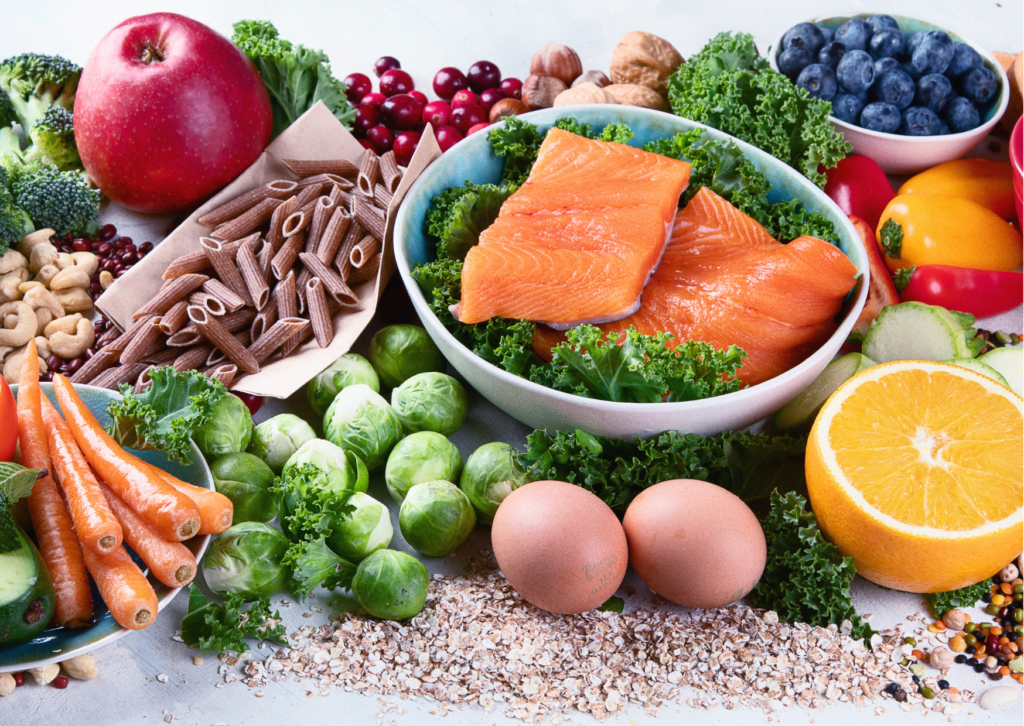Boost Gut Health: Why Fiber is Essential for Your Well-being
If you’re aiming for a healthier lifestyle and to boost your energy, you’ve probably come across all sorts of advice about what to eat. Additionally, one crucial thing to consider is fiber – a super nutrient that does wonders for your gut health and overall well-being. In this post, we’ll delve into why fiber is so important for your diet. Furthermore, we will explore both the positive and not-so-good sides of adding more fiber-rich foods to your meals.

Fiber is like nature’s broom, sweeping in with a bunch of benefits that can truly transform your eating habits and enhance your well-being. Now, let’s break down some of the key perks:
- Feeling Full and Stable Energy: Foods with lots of fiber keep you feeling full for longer. Additionally, this is great if you’re trying to manage your weight. Moreover, fiber helps control your blood sugar, providing you with a steady stream of energy to boost you throughout the day.
- Happy Digestion: A healthy gut is a happy gut. Furthermore, fiber helps keep things moving smoothly, preventing constipation and supporting your digestive system. Essentially, it acts like a natural cleaner, aiding your body in getting rid of waste and toxins.
- Heart Health: Studies show that a diet with plenty of fiber can really lower the risk of heart disease. It helps keep your cholesterol in check and maintains healthy blood pressure, which is excellent for your heart.
- Avoiding Certain Cancers: Some types of cancer, especially in the colon, have been linked to bad eating habits. Fiber, found in whole grains and plant-based foods, can lower the risk of these cancers by keeping your digestive tract healthy.
Now, let’s talk about the balance of it all – the good and not-so-good:
The Good:
- Feeling full and having stable energy
- Keeping your digestive system happy
- Lowering the risk of heart disease
- Reducing the risk of certain cancers
The Not-So-Good:
- Too much fiber can cause bloating, gas, and constipation.
Tips for Eating the Right Amount:

- Take It Slow: If your diet doesn’t have much fiber right now, add it in gradually. Jumping in too fast can upset your stomach. Give your body time to adjust.
- Stay Hydrated: Fiber likes to soak up water, so make sure you’re drinking enough fluids. This helps prevent constipation and lets the fiber move through your system smoothly.
- Mix It Up: Get your fiber from a mix of foods – fruits, veggies, whole grains, and legumes. A colorful plate means you’re getting a good variety.
- Listen to Your Body: Everyone’s different. Pay attention to how your gut reacts to more fiber, and adjust things based on how you feel.
A well-fed gut is a happy gut, and fiber can make a big difference in your journey to feeling great. Furthermore, by understanding the positive aspects of fiber-rich foods and adhering to these practical tips, you can embark on a path to better digestion, a lower risk of disease, and to boost of energy. In conclusion, cheers to a lively life with a happy and healthy gut!
Take our free gut assessment
February 27, 2024
Leave a Reply Cancel reply
Podcast
Have you tuned in?
Let's Start Health; a podcast willing to start the awkward, vulnerable, and even hard conversations needed in order to break through stigmas of mental and physical health, as well as educate and inspire those on a journey to healing. Hosted by Chelsea Haines.
Be the first to comment